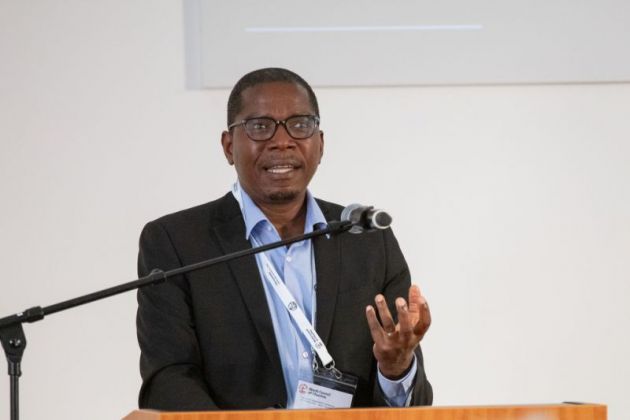140 years on, Berlin Conference to divide Africa is revisited by churches

Ecumenical groups have met 140 years after the Berlin Conference of 1884–1885, to acknowledge that the deep wounds of colonialism, served by the conference have not healed.
The Berlin Conference is considered one of the most consequential geopolitical gatherings in modern history as it sought to carve up Africa for colonial interests.
The World Council of Churches and its ecumenical partners, including the Evangelical Church in Germany (EKD), Bread for the World (BftW), and the Association of Protestant Churches and Missions in Germany (EMW) convened this year's meeting on May 18.
Rev. Kenneth Mtata, World Council of Churches program director for Life, Justice, and Peace, spoke of how political leaders met in Berlin 140 years ago to partition Africa.
"They didn't want to have a conflict over how they were going to share the resources of Africa," said Mtata.
"One of the major challenges of colonization was at the level of knowledge production: who knows, and how is that knowledge shared?" he said.
Rev. Christopher Easthill, chair of the Council of Churches in Germany, reflected that many churches were complicit in the decisions at the Berlin Conference.
"At a time when righting the wrongs of racism and colonialism itself is coming under significant pressure and criticism, and in fact even acknowledging the sinfulness of our colonialism is being attacked, this conference is very timely," he said.
Speakers acknowledged that, while they cannot unmake the 1884-85 conference, they could remake the conference so that it sends a very different message.
Rev. Dagmar Pruin, president of Bread for the World, a German Chrisitan advocacy agency said that the relationship between churches and colonialism is one that churches continue to examine with "honest humility and courage."
"Our institutions, our way of working, and even our understanding of development have been shaped by colonial legacies," she said. "Acknowledging this is not about blame—it is about responsibility."
The 1884-1885 Berlin Conference of 1884-1885 formalized the partitioning of Africa, leading to significant colonial exploitation and the establishment of arbitrary borders across the continent.
- OTTO VON BISMARK
Otto von Bismarck, the first chancellor of Germany, organized the conference of 14 countries at the request of Leopold II of Belgium, according to Wikipedia.
Thirteen countries were from Europe: Austria-Hungary, Belgium, Denmark, France, Germany, Italy, Netherlands, the Ottoman Empire, Portugal, Russia, Spain, Sweden-Norway, and the United Kingdom. The only non-European country to attend was the United States.
It met on Nov. 15, 1884 and, after an adjournment, concluded on Feb. 26 1885 with the signing of the General Act.
By 1902, 90 percent of all the land that makes up Africa was under European control.
Dr Silke Lechner, Protestant Church of Germany, a member of the EKD Council, and deputy commissioner for churches and religions for the City of Berlin, referred to the conference 140 years ago as a power grab.
"The predecessors of the German churches have played a role in this development of racism," she said, suggesting that, 140 years later, churches turn that agenda upside down.
As the international conference "Berlin 1884–1885 and Anti-Black Racism: In Search of a Shared Anti-Racist Ecumenical Vision" opened on May 18, those gathered in-person and online acknowledged that the deep wounds of colonialism carved 140 years ago "are not healed."